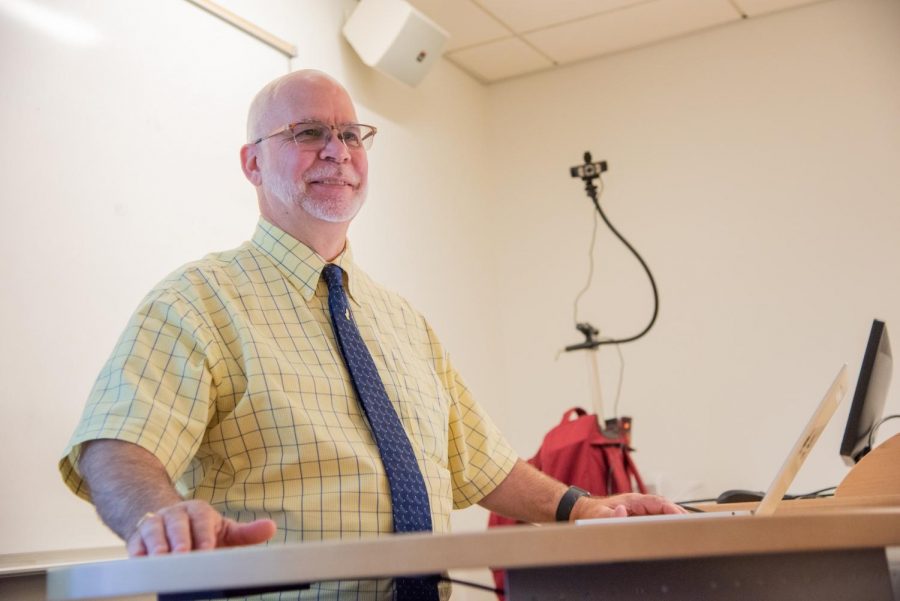New Cybersecurity Degree Announced
Andrew Wolfe, visiting professor of computer science, addresses students in a progamming class on March 4. Wolfe is in charge of Loyola’s new cybersecurity degree programs, which he says will prepare students to work in a growing field. Photo credit: Michael Bauer
March 8, 2020
In response to a nationwide shortage of cybersecurity professionals, Loyola University New Orleans is now offering a new bachelor’s degree in cybersecurity fall 2020.
The new program follows curriculum guidance from the National Security Agency, the National Initiative for Cybersecurity Education and the National Cyberwatch Center. Cybersecurity students can expect to learn programming, corporate cyber strategy, cryptography, digital forensics and more. Courses are available to all students and subject to prerequisites; however some of the upcoming cybersecurity courses have no prerequisites.
The new program will be led by Andrew Wolfe, a visiting professor of computer science with over 35 years experience in the topic, alongside others.
Loyola is actively considering offering a cybersecurity minor, citing the applications of the subject across a variety of other majors such as business and communications.
Wolfe says, “The cybersecurity professional works with organizational, business, and legal issues. Loyola’s program is unique in its ability to expose students to a breadth of cybersecurity topics in small-class settings.”
Median pay for information security analysts is hovering around $98,000, according to the Bureau of Labor Statistics, and employment in this field is expected to grow much faster than the average for other occupations.
As for how the Wolfpack can stay safe from cyber threats, Wolfe says, “Use a different password for every web site and computer account, and keep yourself from going crazy by using a good password manager program like LastPass or 1Password. Do not give passwords for any account to anyone else. Apart from these, the greatest danger I see is the student culture of streaming and of downloading applications. College students are heavily targeted for so-called “Trojan Horse” applications. Such software often performs a useful service, or provides a fun gaming experience, but behind the scenes it is searching for personal information to steal. Avoid any software that is not from an official store like Google Play or the Apple App Store, or at least scrutinize it very closely.”
Wolfe says the new program is being introduced because, “Just in Louisiana we have seen serious disruptions from cyberattacks, but the problems are longstanding and nationwide—in fact, worldwide. It’s hardly a surprise to read estimates of unfilled US Cybersecurity positions ranging in the hundreds of thousands. It’s a need, and it’s a way Loyola can serve the greater community.”







